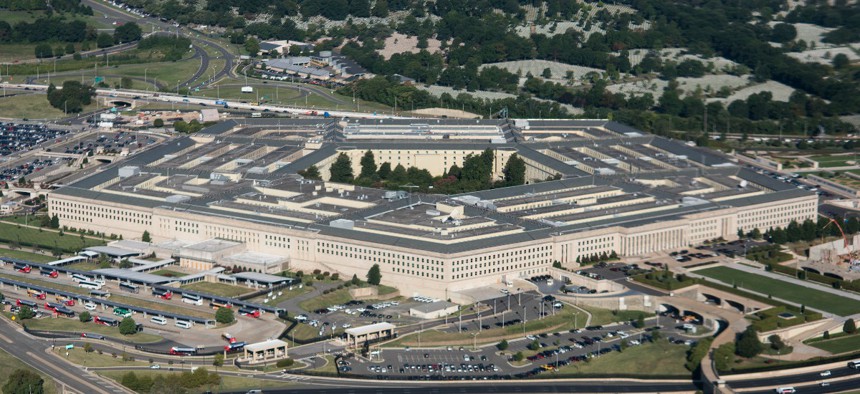Defense Officials Review AI Initiatives Within New Office

Bill Clark/CQ-Roll Call, Inc via Getty Images
A House committee hearing questioned defense officials about the agency's new AI officer role and the ethics underpinning emerging tech.
As the U.S. government looks to better regulate and utilize emerging technologies, namely artificial intelligence, the Department of Defense is in the process of refining how it will oversee the building and implementation of AI technologies into business operations.
Testifying before the House Subcommittee on Cyber, Innovative Technologies and Information Systems, officials working within Defense’s technology sector reviewed the role of the new office of the Chief Digital & Artificial Intelligence Officer as part of the agency’s larger AI ambitions.
“We've had a robust effort underway since IOC [initial operational capability] on the first of February to bring the new organization together, identifying leaders, ensuring employees know where they go in the new structure and really getting the most synergy out of this new AI, data, digital services alignment together with this,” John Sherman, Defense’s chief information officer and acting chief digital and artificial intelligence officer said.
He further elaborated that as the inaugural CDAIO, he has been working with colleagues to delineate the new office’s responsibilities from similar offices, including the Chief Information Officer and the Joint Artificial Intelligence Center.
“There's a lot of AI going on in the services under the military departments that we have some established governance there, much of which goes to the CIOs, but not all of it,” Sherman said. “And that's an opportunity for us so we need to tighten that up as well.”
Fellow Defense official Margaret Palmieri, the principal deputy chief digital and artificial intelligence officer, elaborated on how Defense’s plans for further AI development impact the 2023 Fiscal year budget for the agency.
Palmieri described her plans to test and scale AI-based analytical tools that are focused on responsible ethics. Ideally, this technology will be integrated into Defense warfighting missions.
“Much of our budget in the FY23 cycle and FY22 cycle is focused on bringing that core enabling enterprise capabilities,” she said. “So that includes the computing platform, the tools and then the data policies that will enable us to access different data from across the department, to really bring that together and enable either analytics or ultimately artificial intelligence to be able to support decision makers with decision advantage.”
This technology is a critical component of DOD’s AI and Data Acceleration Initiative and Project Maven, two projects focused on incorporating AI and machine learning into combat operations.
She also added that the agency is working on developing responsible AI guidelines as officials work to adopt the technology more widely.
“It's reliable that there are well-defined use cases and we know what the AI is good at and what it is not good at—and we have a testing and assurance cycle associated with that—and that it's governable, and that we know that it does its intended functions. And if it doesn't do those intended functions, we can either deactivate the system or take it offline,” Palmieri said.






